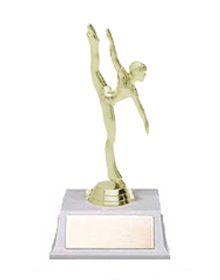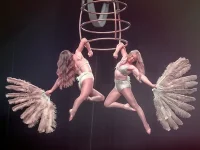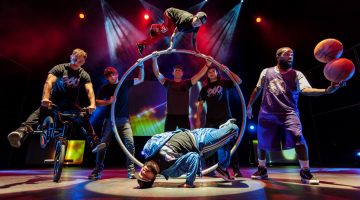 I often hear and watch dancers spend so much time going over their routine just prior to performing in competition – the physical steps that one would expect would be so ingrained by the day of competition. However, I rarely observe anyone spending quality time on mental and emotional preparation.
I often hear and watch dancers spend so much time going over their routine just prior to performing in competition – the physical steps that one would expect would be so ingrained by the day of competition. However, I rarely observe anyone spending quality time on mental and emotional preparation.
The time leading up to an event is vital. It is a time when dancers begin to feel stress and anxiety. They start to remember what went wrong last time; begin to doubt they have the ability to “get it right”. Such emotional roadblocks can be even more problematic if the dance coach/teacher is expecting “big things”, or family and friends are in the audience, expecting you to be as great as they imagine you should be.
You can’t escape these thoughts and feelings, so …
gaining control over your mental and emotional state is the key.
If you let stress play on your mind your focus may be shifted way from the job at hand, with potentially disastrous results. However, pre-performance nerves spur great performers on to even greater performances. So, welcome them … use them to advantage.
Having a competition routine will provide stability and strength.
Making use of a mental preparation regimen during your established physical warm up and preparation will help you keep focused and confident. However, your mental/emotional preparation begins well before you step foot on the dance floor, and includes:
Seeking feedback / evaluation
The secret to effective feedback is the ability to divorce you from yourself. Step back and see yourself as a “product” or “object”. Taking away the subjective connection will help you be more realistic and objective, and help avoid the tendency to take feedback too personally. The aim is to analyse and modify towards improvement, not self destruct. This is hard for many to work with at first, and it may take some practice before you can look at your own performances clinically, analytically and honestly However, once you have mastered this skill, you will grow as a dancer and a performer, one who is who is strong minded, focused and well prepared to work with their coach towards success.
Developing visualisation skills
Successful performers have the ability to visualise- to determine an expectation and then create a mental picture to visualise an outcome. Visualisation is the art of running the scenario in your head, “seeing” how the actual performance will go, rather than engaging wishful thinking. Successful competitors don’t necessarily imagine winning – that can cause false expectation. They visualise a strong performance wherein they reproduce what they have worked so long for in training and practice. Winning is just the icing on the cake, and to lose is not the end of the world … rather it is simply one more step on the road to ongoing elite performance.
Establishing … and following … a pre-competition routine
A consistent pre-competition routine can be very effective in keeping obstacles and distractions under control across time and venues. For many, a vital part of the routine may simply be arriving at the venue at a specific time prior to the event, allowing time to settle, getting “the lay of the land”, and putting the fear of the unknown “to bed”. However, quiet time to get your thoughts and emotions in order remains an essential part of your routine, as is a set physical warm up. To walk on the floor unprepared emotionally will bring the results you would expect. If you acknowledge that a performance starts well before you step on the floor you will appreciate many performers have superstitions/habits they adhere to without fail as part of their pre-performance routine. That’s fine; it helps create a positive mindset, thus forming a very useful part of their routine. You get the idea. A routine is very personal. Take the time to develop yours, and it will become an integral part of your success as a performer.
Controlling unnecessary distractions
Distractions destroy focus and sometimes belief. Successful performers have set pre-performance strategies they utilise to engage their minds towards focusing on the job at hand. You know when you see a performer “in their zone” – they appear distant and aloof. They may not even seem to notice you. They’re not being rude. They are actually in a strong place in their mind, following the routine that helped them become successful every time they set foot on the floor.
While you cannot control everything that will confront you,
you can work on making sure you are prepared for competition.
Success comes from a combination of things. First, you need talent. That’s a given. You need to practice “smart” – be consistent and make effective use of your time and resources. And you need a well developed mental/emotional strategy to tie all this together and assist you in dealing with and overcoming external circumstances that you will never have control over.
A performer who is physically, mentally and emotionally prepared will be more able to handle changes, distractions, or setbacks prior to or during competition than those who believe in “fate”, and have a much greater chance of success … time and time again.
By Jeff Withers
www.redriverjourney.com.au













